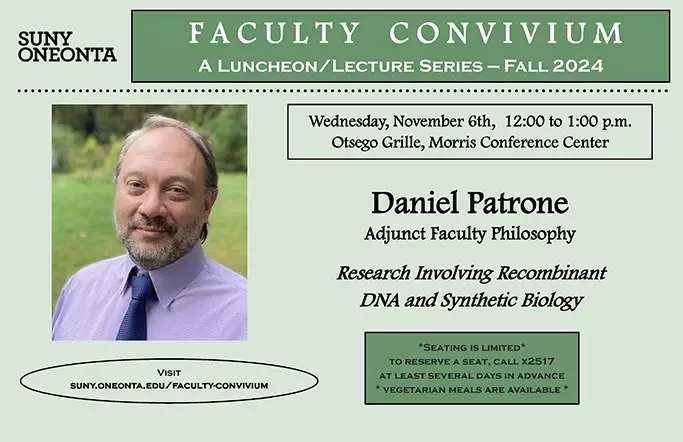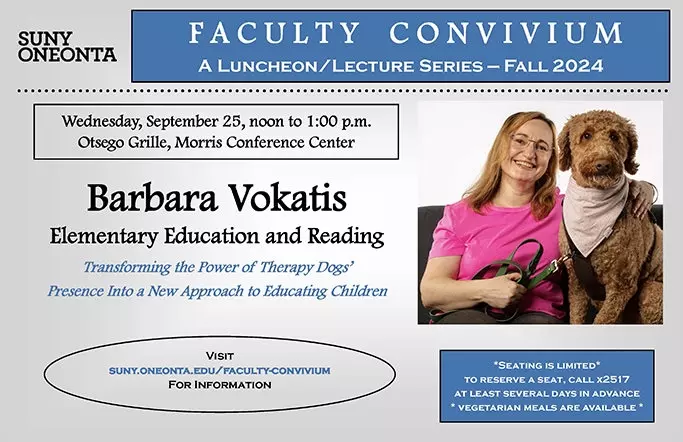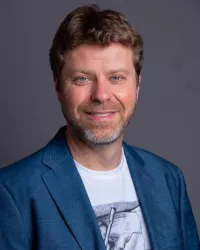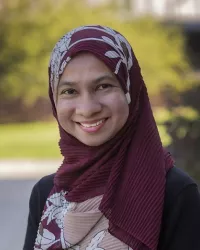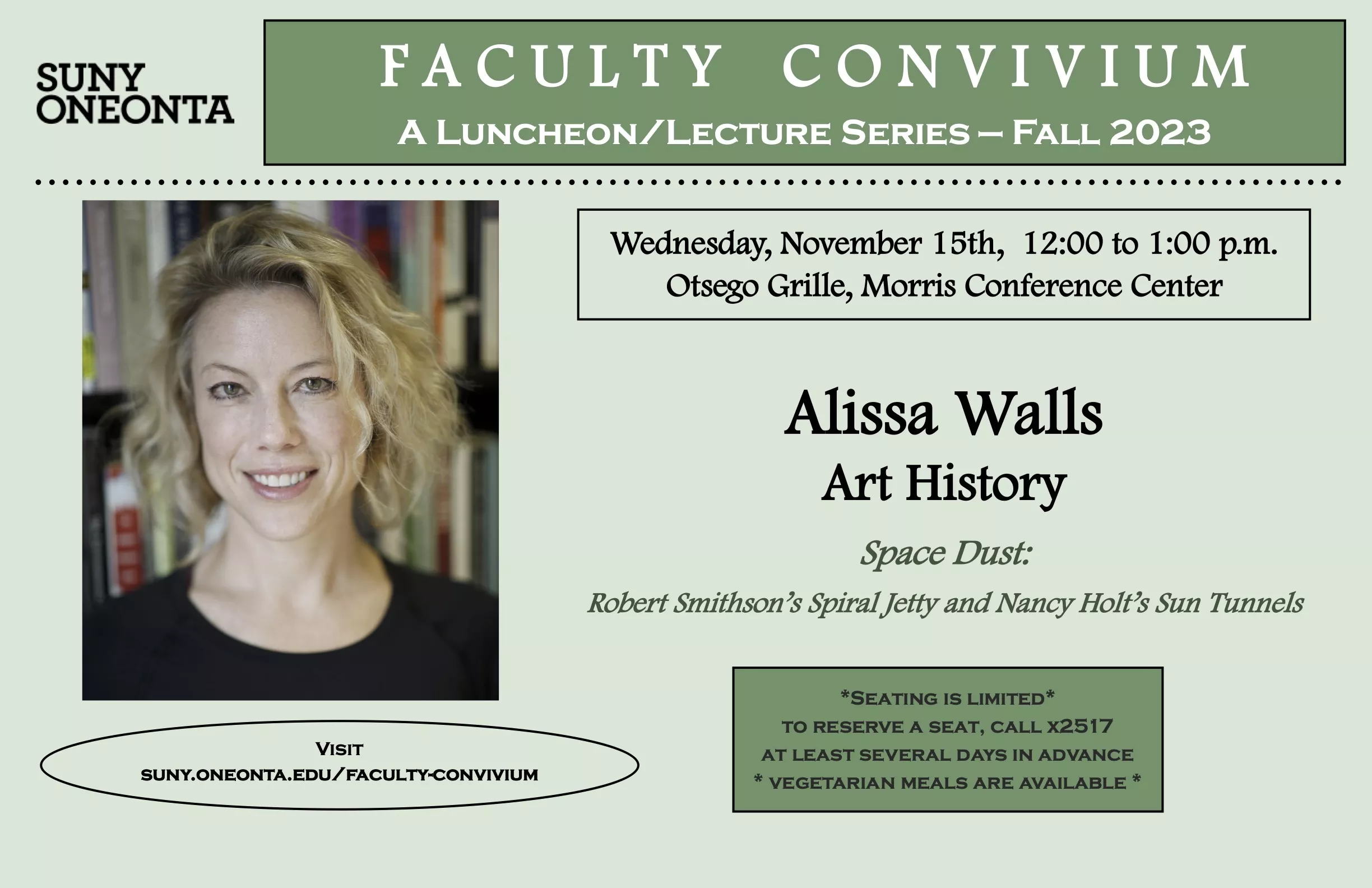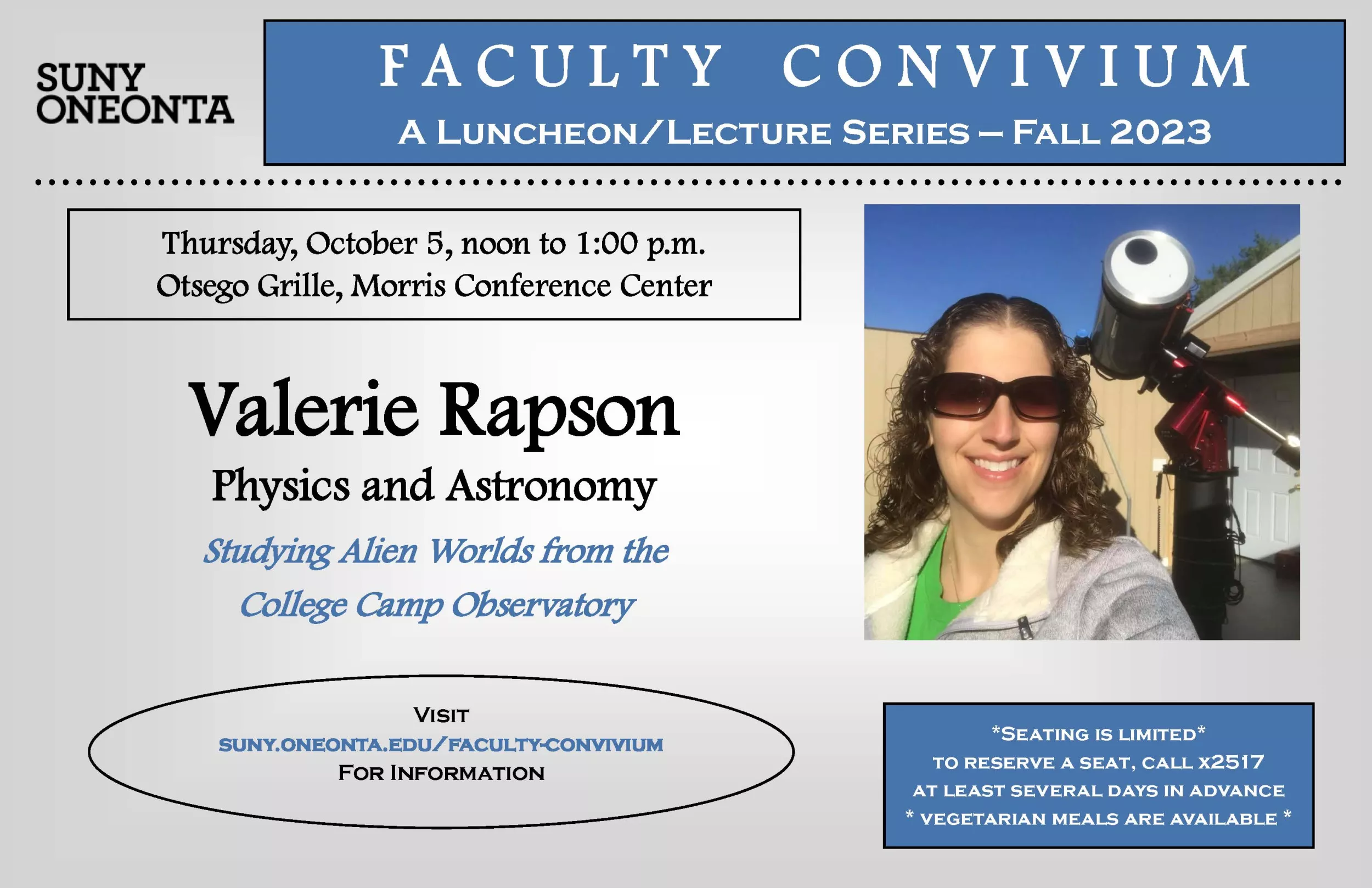2024
Fall 2024 Lecture Series
Presented in Otsego Grille, Morris Conference Center, at noon
(unless otherwise noted)
What Does Our Biosafety System Really Protect?:
Evaluating Compliance with Professional Self-Regulation Requirements in Research Involving Recombinant DNA and Synthetic Biology
Wednesday, November 6, 12 - 1 p.m., at the Morris Grille
Daniel Patrone
Adjunct Faculty Philosophy
Research involving recombinant DNA and synthetic biology has tremendous social value. But this research also carries risks to workers, the public health, and the environment. In the United States, the biosafety system meant to identity and minimize such risks, and to ensure the responsible conduct of this type of research, was developed with the deliberate policy goal of promoting researcher autonomy and professional self-regulation. But how effective is a regulatory system that relies on researcher and their funding institutions to ensure that their own work is safe and socially responsible?
Drawing on a year and a half long study in which I pursued and reviewed tens of thousands of pages of internal documents from U.S. research institutions and Federal funding agencies to understand better the answer to this question, this talk identifies and discusses numerous particular and systematic problems with the current biosafety system for research involving recombinant and synthetic nucleic acid molecules. Understanding the extent to which researchers and their sponsors systematically fail to comply with the principles of safe and effective regulation of science is crucial for improving the safety of research, for thinking about the future culture and practice of r/sNA research, and for public deliberations regarding the growing calls for statutory regulation of the field.
Transforming the power of therapy dogs’ presence into a new approach to educating children
Wednesday, September 25, 12 - 1 p.m., at the Morris Grille
Barbara Vokatis, Ph.D. (she/her)
Professor | Coordinator of Literacy Programs & Clinics
Nowadays, schools need to handle growing anxiety among all children, including the youngest children. High levels of anxiety often hinder children’s learning. How do we help children in lowering their anxiety and boosting their engagement and motivation to learn at the same time? In my presentation, I will tell the audience about the background for an innovative literacy/animal-assisted education lab I created in a local school, together with an elementary school teacher, to try to address this question. I will detail how we created a community in which children interacted with my therapy dog and how we incorporated this experience creatively and innovatively into activities in literacy and math, as well as how this experience impacted children’s literacy growth. I will also discuss tips for spreading the awareness about the power of animal-assisted education and how to bring therapy dogs into schools.
Spring 2024 Lecture Series
Presented in Otsego Grille, Morris Conference Center, at noon
(unless otherwise noted)
Hans Christian Andersen and the Pythagorean Theorem
Most people will know at least some of the fairy tales by the renowned Danish author Hans Christian Andersen (1805–75). Andersen’s fairy tales have been translated into some 160 languages and include The Princess and the Pea, The Ugly Duckling, and The Emperor’s New Clothes. Little known is the poem written by Andersen in 1831, entitled Formens evige Magie (The Eternal Magic of Form), which presents the Pythagorean theorem and its mathematical proof in poetic form. Polemic in nature, the poem engages with the question of form and substance in poetry—the Pythagorean theorem and its proof are used by Andersen to represent strict structural form. The talk will explore Andersen’s recollections of school mathematics, his mathematics exams, and the literary context for the poem about the Pythagorean theorem, as well as presenting an English translation of the poem with commentary.
Vignettes of Memoria, Verdad y Justicia (Memory, Truth & Justice)
Examines the linguistic landscapes and literacy practices of a public commemoration marking the 40th anniversary of the March 24, 1976, coup in Argentina. Drawing on a three-year, grant-funded research conducted across three distinct sites in Buenos Aires — a public university, the hub of a city center, and a former naval base and clandestine detention center transformed into an educational space for memory and justice, this talk illuminates the ways in which critical and multimodal literacies function spatially to evoke memories of the past while addressing contemporary justice concerns. Attendees are invited to engage with social justice issues in the United States and beyond, fostering diversity, equity, and inclusion through the advocacy of inclusive pedagogies.
2023
Fall 2023 Lecture Series
Presented in Otsego Grille, Morris Conference Center, at noon
(unless otherwise noted)
Space Dust: Robert Smithson’s Spiral Jetty and Nancy Holt’s Sun Tunnels
Alissa Walls (Art History)
Wednesday, November 15, 2023
My talk “Space Dust,” explores the relationship between the Great Salt Lake and two works of land art: Robert Smithson’s Spiral Jetty (April 1970) and Nancy Holt’s Sun Tunnels (1973-76). Taken together, Spiral Jetty and Sun Tunnels serve as touchstones for notions of being and doing as artistically investigated through space and time, light and scale. Given their geographic and geologic connections to the Great Salt Lake, in imminent danger of total extinction, these earthworks also spur us to contemplate just what constitutes sustainable living in the contemporary era.
My research is both art historical and rooted in my own artistic practice, the Spiral having driven work that I have made since 2020. An art memoir in-progress entitled Running the Entire Length: On Running, Breath, Art, and Life explores themes from this more focused study and, more broadly, states of being and doing. In the Spring I will present the exhibition Space Dust at the Open Space Gallery at SUNY-Oneonta, which will encompass the third movement in my Space Trilogy.
Studying Alien Worlds from the College Camp Observatory
Valerie Rapson (Physics and Astronomy)
Thursday, October 5, 2023
In the last 30 years, over 5000 planets have been discovered orbiting other stars in our galaxy. Most of these exoplanets are discovered when they transit their host star, briefly causing the star to dim once per planet orbit. While large space-based telescopes make the bulk of the initial detections, small ground-based telescopes play a crucial role in confirmation and follow-up observations of known systems. Using telescopes at the College Camp Observatory, we can determine the size of the exoplanet, the orbital distance from the star, and potentially detect the presence of additional planets in the system. In this talk, I will share the work that SUNY Oneonta students and I have done to explore known exoplanet systems, and our attempts to detect candidate exoplanets identified by the TESS Observatory. I’ll also discuss my efforts to inspire the general public to get involved in these, and other astronomy-based Citizen Science projects, through public outreach events and planetarium shows.
Spring 2023 Lecture Series
Presented in Otsego Grille, Morris Conference Center, at noon
(unless otherwise noted)
"Race, Gender, Sex, and Species in the 'War on Terror'”
Chloe Diamond-Lenow (Women’s and Gender Studies)
Wednesday, April 5, 2023
Cairo, a U.S. military working dog, was part of the SEAL Team 6 mission that captured and killed Osama bin Laden on May 1st, 2011. Cairo was rendered a public hero after the mission. Dogs like Cairo have figured centrally in the U.S. “war on terror” and in articulations of U.S. nationalism. The dogs are deployed as tools of intimidation, equipment to be cared for, pets to be loved, and heroes to be honored. In this talk, I analyze the politics of race, gender, sexuality, and species in discourses about, and practices surrounding, U.S. military working dogs and the dogs that Americans “rescue” from Iraq and Afghanistan from 2001-2021. I consider how dogs are deployed in this war to mediate representations of racialized masculinities and femininities within frameworks of U.S. nationalism and imperialism. This research extends transnational feminist and postcolonial literature on militarism and racialization through an analysis of how frames of species and tropes of animality inform racialized and gendered nationalisms in U.S. militarism and imperialism.
"Why it Makes Sense: Understanding Teacher Candidates' Attention to Mathematical Practices"
Elyssa Stoddard, Secondary Education & Educational Technology
February 15, 2023
K-12 standards are often viewed as a driver for change in K-12 and higher education. One recent example is the Standards for Mathematical Practice (SMPs), which describe ways of thinking mathematically that students should develop. To date, however, little research has examined how future teachers learn about the SMPs. Since teachers’ understanding of the SMPs will influence the opportunities they provide students, it is essential to understand how they learn about them, as this has implications for educators, policy makers, and other stakeholders. In this talk, hear about a qualitative study which examined the cases of two teacher candidates, and the opportunities they had to learn about SMPs during their student teaching experience.
